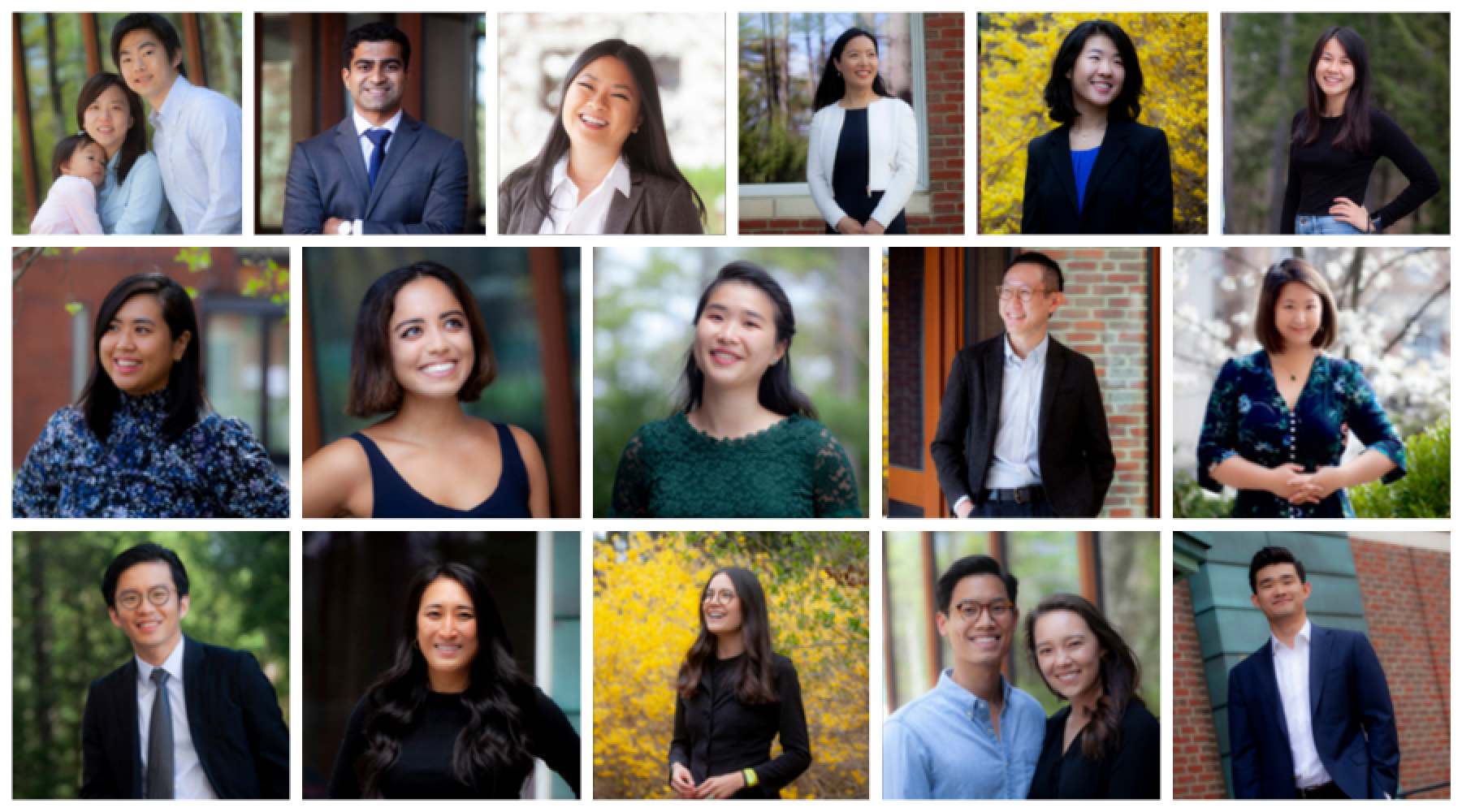
AAPIHM is a time to recognize the contributions and influence of Asian Americans and Pacific Islander Americans to the history, culture, and achievements of the United States. As President Biden wrote, “There is no single story of the Asian Americans, Native Hawaiians, and Pacific Islander (AANHPI) experience, but rather a diversity of contributions that enrich America’s culture and society and strengthen the United States’ role as a global leader.”
I organized this portrait series to highlight the richness of the Asian and Asian American experience, to tell stories that might have been missing. Our identity as Asians and Asian Americans is more than a single label, a single shade, a single culture. The color of each AAPI+ Tuckie is what makes us individually our own selves here together in Hanover, because while we are united, we are unique—together, though different. That’s the beauty of the Tuck fabric.
We asked the AAPI+ student community what their heritage means to them, and how they would describe themselves in three words.
Photography by Laura DeCapua
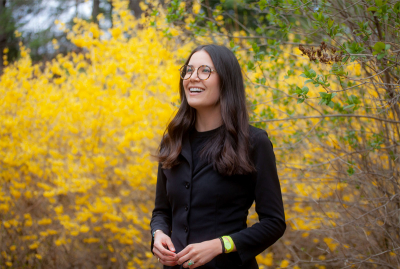
“My heritage means being whole as a multi-racial human. I’m all, I’m both, I am enough.”
—Katie McMurray T’22, Advocate, Grateful, Multi-Racial
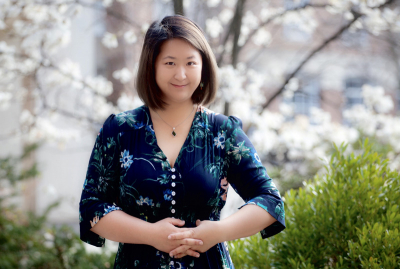
“My heritage is my pride; it's an anchor to those that came before me, their sacrifices to give me the life I have today. But also a reminder that it isn't all that I am and that it's one part of who I am, even if I think it's one of the largest parts. It's the invisible values beneath the ethnicity on the surface that I inherited that I've shaped to my own way.”
—Elisabeth Sum T’21, Hong Kong American, Family-Oriented, Giver
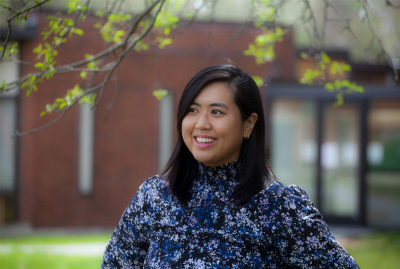
“My heritage means that I take pride in my racial and ethnic background and share the most beloved aspects of my upbringing. In sharp contrast to my childhood, I now fiercely embrace the diversity I and others offer and hope that this attitude becomes more ubiquitous over time for everyone.”
—Jean Rieuthavorn T’22, Chinese Thai American, Curious, Younger Sister
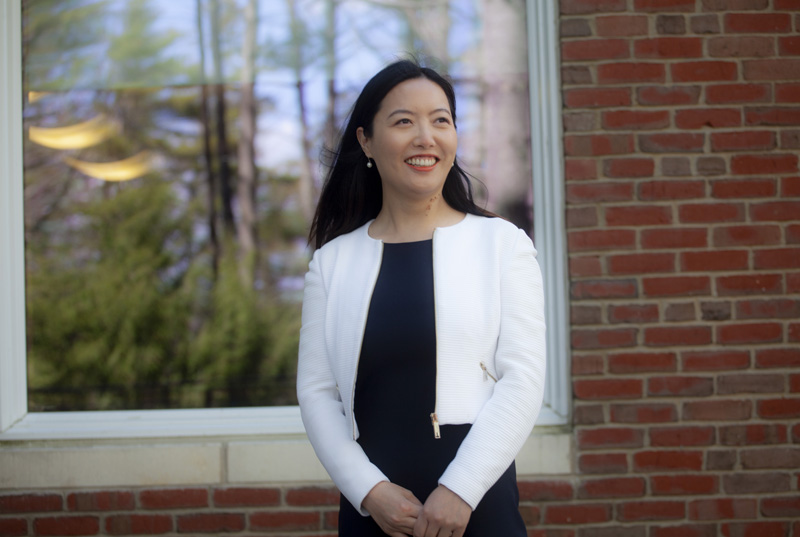
"My heritage means family and responsibility. April 5 is the Chinese Qingming Festival every year, a traditional holiday when people gather to honor the memory of the ancestors. It is always big for my father. More than 20 family members gather in my parents’ house. We walk on the same beautiful countryside road, grasses and flowers on both sides, to my great grandparents’ and grandparents’ graveyard. We conduct a serious ceremony, burning joss paper, lightening fireworks, kneeling and bowing to the ground, and even talking to the ancestors. We return to my parents’ house, drinking tea, having dessert, and chatting about our ancestors and life. We get to know our family more and bond deeper. We support each other in hard times, share the happiness and sadness, and celebrate the success. My father has hosted this family gathering for more than 25 years. To him, it is an honor and responsibility. His belief and action have influenced me tremendously and led me to think about my responsibility to the family, to the community, or even more broadly, to the humanity.”
—Ling Yin T’21, Chinese, Big Finance Gal, Lifelong Learner
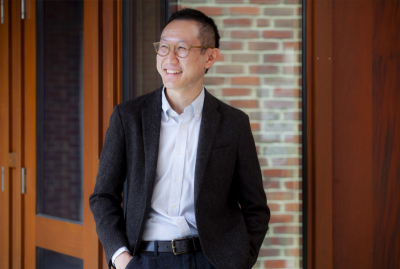
“My heritage anchors me to a unique history that necessarily informs who I am and how others perceive me.”
—Steven Kung T’22, Rising, Striving, In Motion
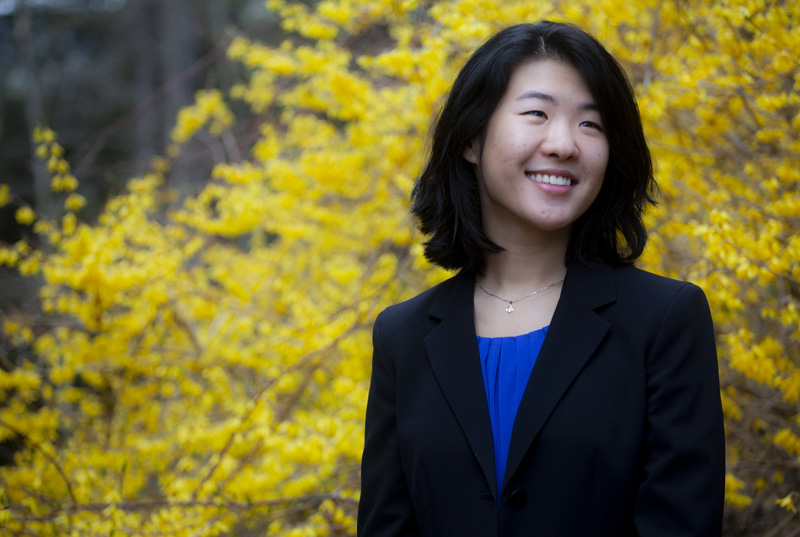
"As an ethnically Chinese woman who moved across multiple continents before ending up in the US, I spent my childhood never feeling like I truly belonged with any community. I was a hyphen, seen as neither Chinese nor American by either. Over the years, I have been lucky enough to meet friends who have accepted and celebrated the beautiful ways that we were different. We came from different paths in life but learned from each other in so many ways, whether it meant making the family dumpling recipe or learning traditional dances together. Through these experiences, I have learned to embrace my own individuality and see that it brings value to myself, to the people around me, and to the missions that I am committed to."
—Louisa Chen T’21, Chinese-American, Immigrant, Resilient
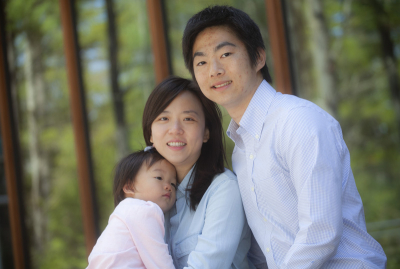
“My heritage strongly influenced who I am. It is my country, my culture, my family and the legacy of the people before me. Along with my life experience, I will pass it on to my children, to support them wherever they are.”
—Alvin Li T’21, Taiwanese, Husband & Father, Immigrant (pictured with family)
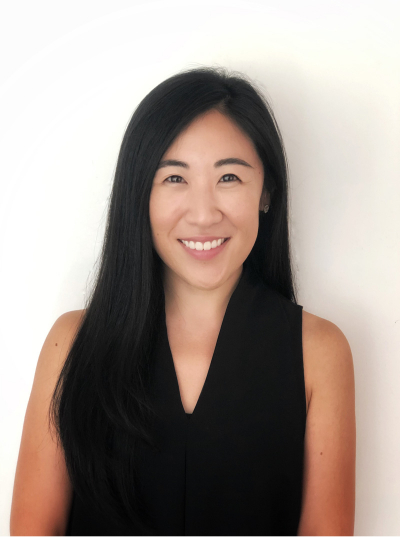
Photo Courtesy of Jessica Ahn
"My parents hardly speak of their time in South Korea and instead focus on the present and future. But over time, I've collected some of their memories and that of my ancestors and it helps me stay connected. These stories remind me of who I am as a Korean American. At times, I've felt ashamed of my Asian-ness, straddling this awkward purgatorial state of being a woman of color but not one who is underrepresented. Sometimes, my color feels bleached. Other times, it’s all that is used to label me. This may be the first time in my life where I feel I can speak of my heritage without being ignored."
—Jessica Ahn T’21, Korean American, Older Sister (Noona), Independent
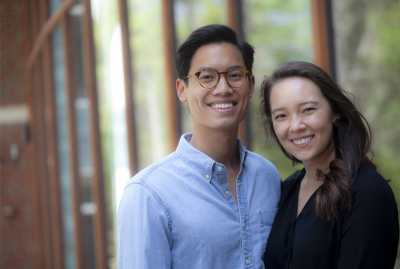
“I view heritage as a sense of cultural identity and family values that have been passed down by my parents. It's an appreciation of the sacrifices my immigrant parents made in order to provide more opportunities for my brothers and I, as well as a sense of duty to make the most of those opportunities.”
—Binh Doan T’21, Brother, Vietnamese American, Texan (pictured with Ana Adams TP’21)
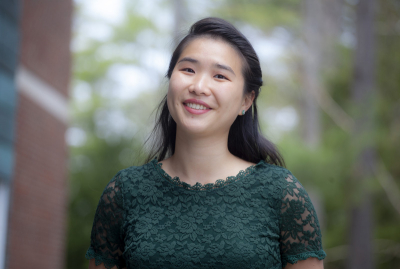
“Heritage means knowing deeply the people who brought me into this world and taught me all I know.”
—Melissa Leung T’22, First-Generation Chinese American